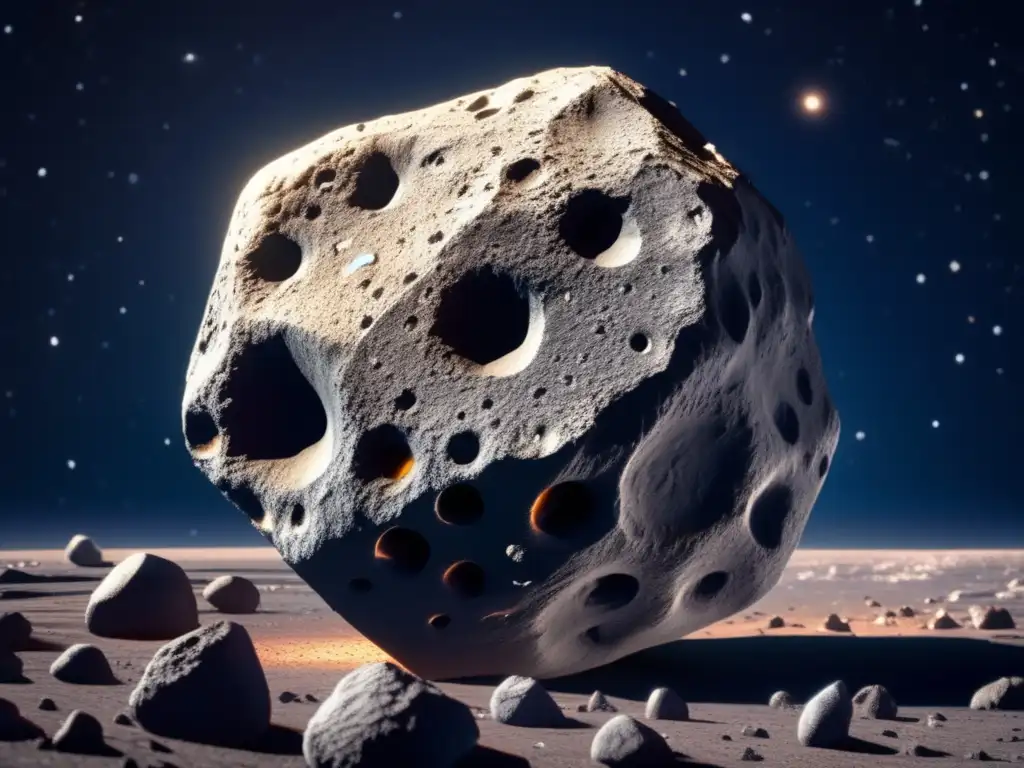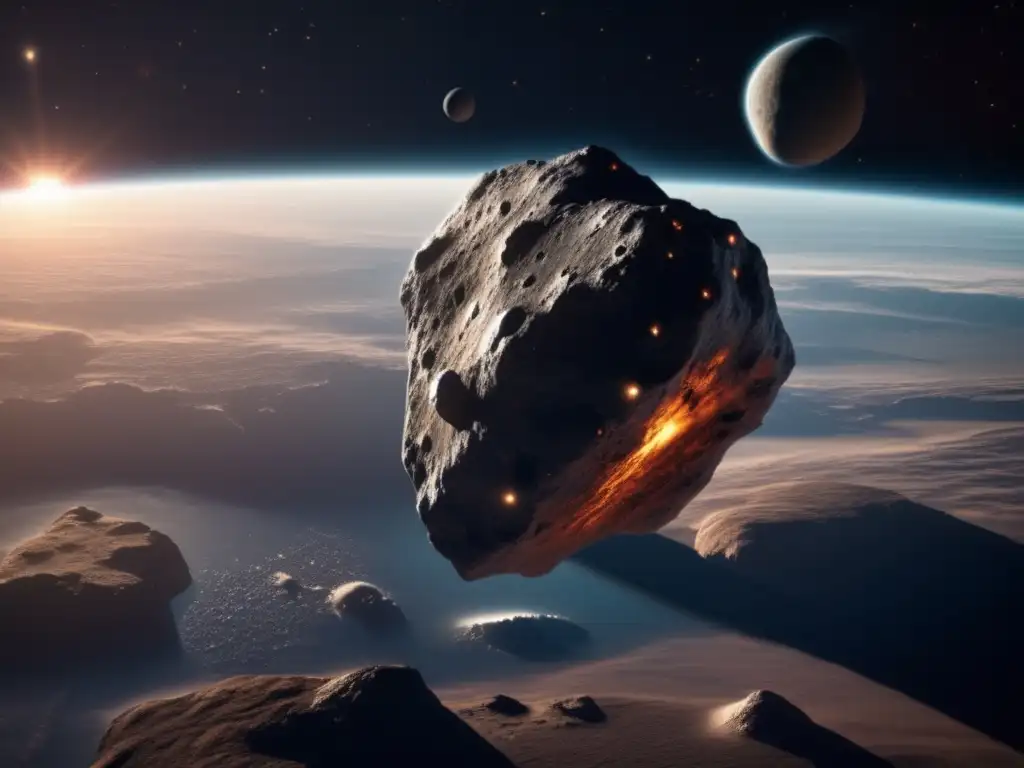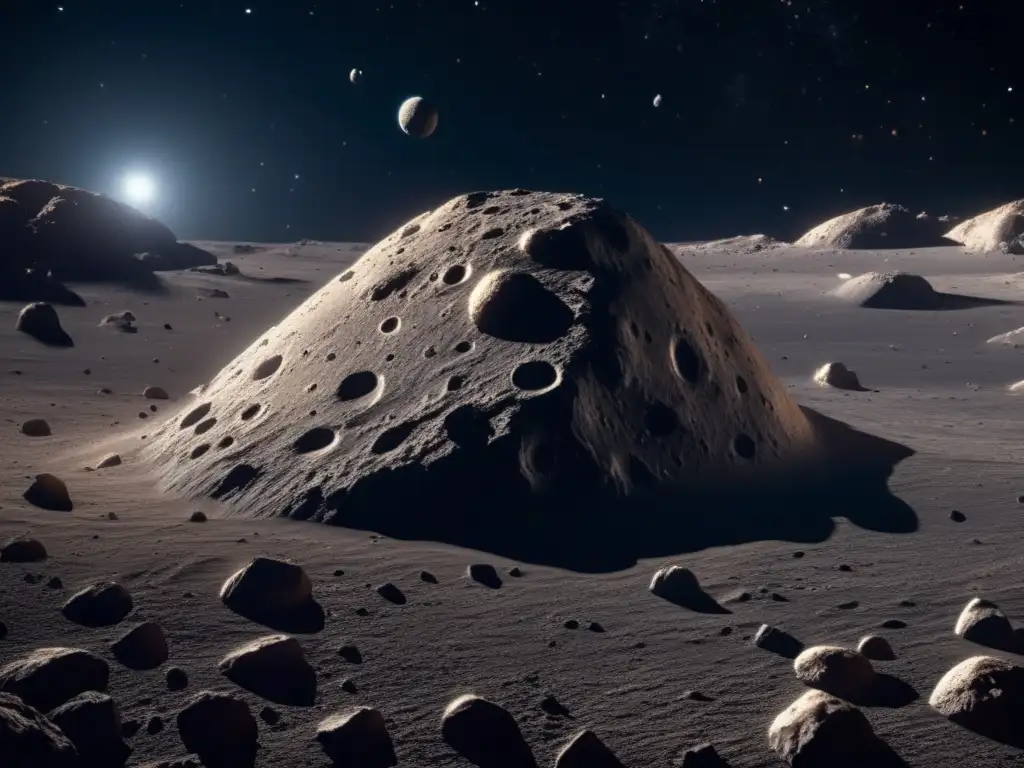Impacts From Infinity: Exploring Asteroids' Journey To Earth

Introduction
Asteroids are one of the most important celestial bodies in our solar system. These small rocky objects orbit the sun and can range in size from tiny specks of dust to large behemoths hundreds of miles across. Asteroids have played a crucial role in shaping the history and evolution of our planet, including some catastrophic events such as mass extinctions. In this article, we will explore how asteroids impact Earth and the significant impacts they can have on our planet.
The Formation of Asteroids

The Early Solar System
Asteroids are thought to be remnants of the early solar system, formed around 4.6 billion years ago. They were created from the leftover material that never formed into planets, due to gravitational waves and other factors.
The Inside Look
The composition of asteroids is diverse, with most being composed of rock, but others containing metal or even water. Among the most common elements found in asteroids are iron, magnesium, and silicon. The composition of asteroids has been crucial in identifying their origin and history in the solar system.
Asteroid Belt
The majority of asteroids are found in the asteroid belt between Mars and Jupiter, which contains millions of objects of various sizes. However, there are many others that orbit the Sun in different parts of the Solar System, such as those that cross Earth's orbit and near-Earth asteroids.
Impacts of Asteroids on Earth

Dinosaurs' Extinction
One of the most famous asteroid impacts on Earth was the one that wiped out the dinosaurs 66 million years ago. This event, known as the Cretaceous-Paleogene extinction, happened when a six-mile-wide asteroid hit the Yucatan Peninsula in Mexico, creating massive dust clouds that blocked out the Sun and caused a global winter which killed off large numbers of plants and animals.
Tunguska Explosion
In 1908, another notable impact occurred in the Tunguska region of Siberia when an asteroid or comet exploded above the ground with the force of 10-15 megatons of TNT. While there were no casualties, the explosion flattened trees in an area of over 800 square miles, and the blast could be heard hundreds of miles away.
Near-Earth Asteroids
Today, efforts are being made to identify, track, and study near-Earth asteroids that pose a potential risk for collision with our planet. One example is the asteroid Apophis, which passed close to Earth in 2004 and is predicted to do so again in 2068. While the likelihood of a collision is low, it highlights the importance of understanding and monitoring these objects in the future.
The Importance of Studying Asteroids

Understanding the Origins of Our Solar System
One of the reasons for studying asteroids is to understand the early solar system's processes, such as the formation of planets. Studying the composition and distribution of asteroids can provide valuable insight into how the solar system evolved and help answer questions about its origins.
Mineral Resources on Asteroids
Another crucial reason for studying asteroids is the potential use of mineral resources. Many asteroids contain valuable minerals such as iron, nickel, and platinum, which could be used for commercial purposes in the future. Companies such as Planetary Resources and Deep Space Industries are already planning missions to mine asteroids in the coming years.
Probing the Solar System
Asteroids are also one of the easiest objects to reach with spacecraft and can provide a relatively low-cost means of exploring the outer solar system. Missions such as NASA's Dawn spacecraft have visited multiple asteroids, providing critical data on their composition and structure.
Frequently Asked Questions

-
How likely is an asteroid impact on Earth?
While asteroid impacts on Earth are rare events, they do happen. The likelihood of a major impact occurring is thought to be low, but efforts are being made to identify and monitor potentially hazardous asteroids.
-
Can we prevent an asteroid impact from occurring?
There are several proposed methods for preventing an asteroid impact, such as deflecting the asteroid's trajectory using nuclear bombs or changing its path with gravitational forces. However, these methods are still largely untested and would require significant resources to implement.
-
What would happen if a large asteroid hit Earth today?
The consequences of a large asteroid impact would be severe and potentially catastrophic, depending on the size and location of the impact. A global winter caused by dust clouds could lead to widespread crop failure and famine, while the initial blast could cause significant damage to infrastructure and loss of life.
-
Why is it important to study asteroids?
Studying asteroids can provide valuable insight into the early solar system's processes, including planet formation and evolution. They also contain valuable mineral resources that could potentially be used in the future, and their study provides important information on the distribution of material in the solar system.
-
What is the largest known asteroid?
The largest known asteroid is Ceres, which is located in the asteroid belt between Mars and Jupiter. It is approximately 590 miles in diameter and contains around one-third of the total mass of the entire asteroid belt.
Conclusion
Asteroids are fascinating celestial bodies that have played a vital role in the history and evolution of our planet. From causing mass extinctions to providing valuable insight into the formation of our solar system, asteroids continue to captivate scientists and astronomers worldwide. Understanding these objects' composition, trajectory, and potential impact on Earth is crucial for future space exploration and potential resource utilization.
Thank you for reading this article on asteroid impacts and remember to interact positively with www.asteroidrealm.com by subscribing, sharing this article, and leaving your thoughts in the comments section below.
Additional Resources

For additional resources on asteroid impacts and other related topics, please visit these sites:
 Between A Rock And A Hard Place: Earth’s Position In The Asteroid Belt
Between A Rock And A Hard Place: Earth’s Position In The Asteroid Belt Alien Impact: The Search For Extraterrestrial Asteroid Sites
Alien Impact: The Search For Extraterrestrial Asteroid Sites Cosmic Showers: The Frequency Of Asteroid Strikes
Cosmic Showers: The Frequency Of Asteroid StrikesIf you want to discover more articles similar to Impacts From Infinity: Exploring Asteroids' Journey To Earth, you can visit the Asteroid Impacts category.
Leave a Reply

Articulos relacionados: